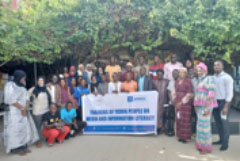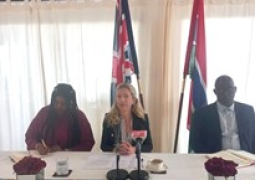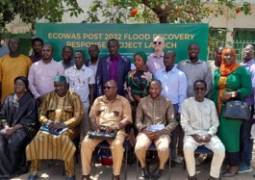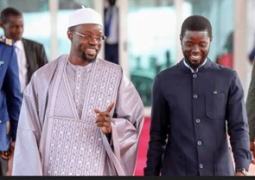
The training brought together 40 youth across all the seven regions in the country.
The objective according to the organisers “…is to build the capacity of young people with Media and Information Literacy (MIL) skills so they can engage ethically with information and media, particularly social media, for positive community development through peaceful and democratic public discourse.”
In addition, the training also aims to “strengthen the capacities of Gambian youth leaders to confidently seek, critically evaluate and contribute to media and information, online and offline.”
Speaking at the opening the ceremony, the executive director of GYIN Gambia, Mamadou Edrisa Njie, highlighted the significance of training youth leaders on media and information literacy cognisant of their importance to society.
“We are organising this three day programme to help you understand disinformation and misinformation and also how we can address hate-speech and also fake news,” the GYIN executive director said.
He added “And presently in the Gambia there is lot of disinformation and misinformation given to the low level of literacy and the high smartphone penetration rate in The Gambia.
“As a result we have been consumers of fake news in The Gambia and the so called fake news is mainly shared and propagated on the internet particularly on the social media platforms which needs great attention as youth leaders in our communities,” Mr. Njie added.
For his part, the executive director of National Youth Council, Alagie Jarju, said the synergy is timely bearing in mind the influence and importance of obtaining information.
Making reference to the significance of media and information literacy, the National Youth Council top official posed a rhetorical question asking, “How do you find information that is relevant; information that is fake or that is not fake?”
He expressed delight that youth leaders from across the country are being represented and noting their roles in the society.
He urged the trainees to take the training seriously and judiciously share the knowledge gained from the training with their peers in their various communities.
Majority of internet users in The Gambia reportedly fall in the youth folk, it is therefore paramount for them to have the right literacy on media and information.





